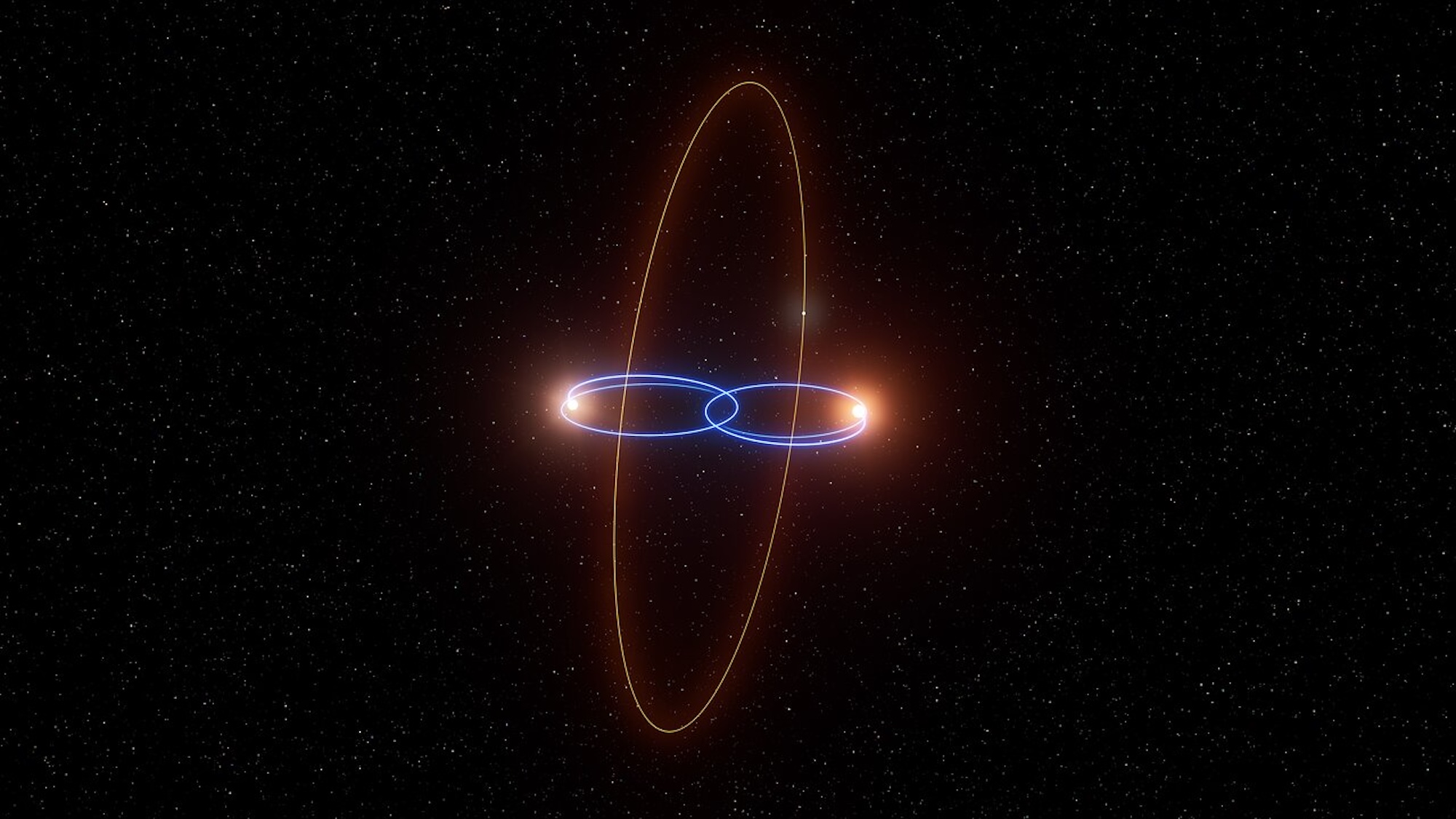Now Reading: Unique Exoplanet with Two Suns Challenges Sci-Fi Comparisons
-
01
Unique Exoplanet with Two Suns Challenges Sci-Fi Comparisons
Unique Exoplanet with Two Suns Challenges Sci-Fi Comparisons

Quick Summary
- Astronomers have discovered an exoplanet named 2M1510 (AB) b, which orbits a pair of brown dwarfs in a rare and distinctive polar orbit perpendicular to the plane of the stars’ travel.
- This is the first confirmed example of such an orbit around a binary system comprising brown dwarfs.
- The discovery was made using radial velocity analysis, combining data from NASA’s Kepler space telescope, TESS satellite, and the European Southern Observatory’s Vrey Large telescope (VLT).
- Brown dwarfs are objects larger than planets but smaller than stars, with sufficient mass to pull other objects into orbit.
- 2M1510’s orbital dynamics bypass challenges posed by the “three-body problem,” a longstanding physics issue that complicates gravitational interaction calculations between three space entities.
- The binary brown dwarf system observed is eclipsing-one star partially obscures the other when viewed from Earth-and is only the second such eclipsing system documented.
Image: Artist’s impression depicts 2M1510’s polar orbit around its host stars-credit: ESO / L. Calçada.
!Exoplanet System Illustration
Indian Opinion Analysis
The discovery of exoplanet 2M1510 in a unique polar orbit represents an vital advancement in understanding planetary systems beyond our solar neighborhood. With more than 75 percent of documented exoplanets having atypical orbits compared to our own solar system, this breakthrough continues to challenge traditional views and underscores the diversity of cosmic environments.
For India, which has been increasingly contributing to global astronomical research through institutions like ISRO and initiatives like ASTROSAT, this serves as both inspiration and motivation for further investments in observational astronomy infrastructure and international collaborations. Such discoveries emphasize how interdisciplinary approaches-involving physics, engineering, mathematics-help overcome obstacles like gravitational modeling issues seen with complex systems.
India could possibly play pivotal roles in similar studies once it scales up existing space science projects aimed at exoplanetary exploration-a field that holds implications not just for science but also philosophical inquiries about life elsewhere in the universe.

























